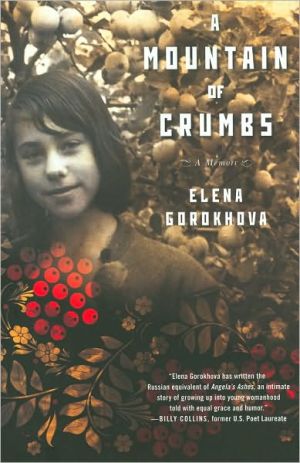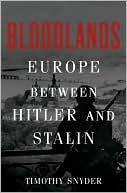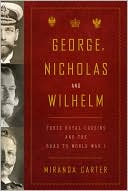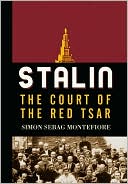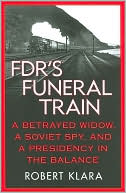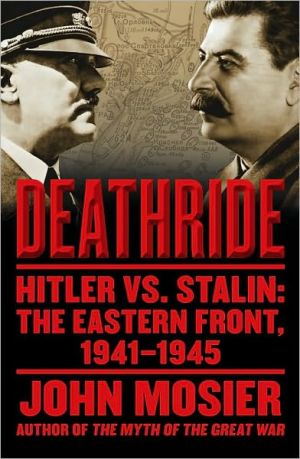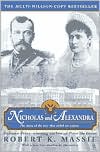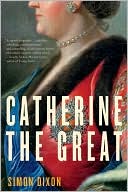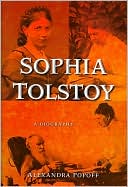A Mountain of Crumbs: A Memoir
"A Mountain of Crumbs is the moving story of a young Soviet girl's discovery of the hidden truths of adulthood and her country's profound political deception." "Elena, born with a desire to explore the world beyond her borders, finds her passion in the complexity of the English language - but in the Soviet Union of the 1960s, such a passion verges on the subversive. Elena's home is no longer the majestic Russia of literature or the tsars. Instead, it is a nation humiliated by its first...
Search in google:
Elena Gorokhova grows up in 1960's Leningrad where she discovers that beauty and passion can be found in unexpected places in Soviet Russia. The New York Times Book Review - Elena Lappin …[Gorokhova's] exquisitely wrought, tender memoir of growing up in the Soviet Union…could be taught as a master class in memoir writing: the key is not to collect facts and recollections but to truthfully reimagine one's life…Gorokhova writes about her life with a novelist's gift for threading motives around the heart of a story, following its plot with a light touch and unwavering honesty. Each chapter distills a new revelation in poetic prose
1. Ivanovo\ I WISH MY MOTHER HAD come from Leningrad, from the world of Pushkin and the tsars, of granite embankments and lace ironwork, of pearly domes buttressing the low sky. Leningrad’s sophistication would have infected her the moment she drew her first breath, and all the curved façades and stately bridges, marinated for more than two centuries in the city’s wet, salty air, would have left a permanent mark of refinement on her soul.\ But she didn’t. She came from the provincial town of Ivanovo in central Russia, where chickens lived in the kitchen and a pig squatted under the stairs, where streets were unpaved and houses made from wood. She came from where they lick plates.\ Born three years before Russia turned into the Soviet Union, my mother became a mirror image of my motherland: overbearing, protective, difficult to leave. Our house was the seat of the politburo, my mother its permanent chairman. She presided in our kitchen over a pot of borsch, a ladle in her hand, ordering us to eat in the same voice that made her anatomy students quiver. A survivor of the famine, Stalin’s terror, and the Great Patriotic War, she controlled and protected, ferociously. What had happened to her was not going to happen to us. She sheltered us from dangers, experience, and life itself by a tight embrace that left us innocent and gasping for air.\ She commandeered trips to our crumbling dacha—under the Baltic clouds, spitting rain—to plant, weed, pick, and preserve for the winter whatever grew under the rare sun that never rose above the neighbor’s pigsty. During brief northern summers we sloshed through a swamp to the shallow waters of the Gulf of Finland, warm and yellow as weak tea; we scooped mushrooms out of the forest moss and hung them on thread over the stove to dry for the winter. My mother planned, directed, and took charge, lugging buckets of water to beds of cucumbers and dill, elbowing in lines for sugar to preserve the fruit we’d need to treat winter colds. When September came, we were back in the city, rooting in the cupboard for gooseberry jam to cure my cough or black currant syrup to lower my father’s blood pressure. We were back to the presidium speeches and winter coats padded with wool and preparations for more April digging.\ Maybe if I hadn’t spent every spring Sunday ankle-deep in cold, soggy dirt, I wouldn’t have been so easily seduced by the decadent sound of the English language that poured from the grooves of a record called Audio-Lingual Drills, my tutor’s pride. I might have gone to medical school, like my mother, or engineering school, like everyone else. I might have even married a Russian.\ Maybe if I could have attached the word “intelligentsia” to her weighty figure in a polyester dress made by the “Bolshevik Woman” factory, I wouldn’t have had to escape to America on an Aeroflot flight, a startled face gazing from the passport in my hand, a ravaged suitcase on the KGB inspector’s table packed with twenty kilograms of what used to be my life.\ MY GRANDFATHER, KONSTANTIN IVANOVICH Kuzminov, was a peasant. The countess who owned his village on the steep bank of the Volga five hundred versts from Moscow, feeling guilty for the centuries of serfdom, provided him with a scholarship to attend engineering school. My grandmother was the daughter of a factory owner in the textile town of Ivanovo, who employed most of the men in the village. They married two years before World War I broke out and five years before the Bolsheviks stormed the Winter Palace and the country exploded into civil war.\ By 1918, when the altruistic countess, among throngs of panicked nobility, sailed from the Crimea toward Turkey, my grandparents already had three children, my mother and her two younger brothers. The revolution, with its promise of liberation from the yoke of absolutism and paradise for all working people, seemed to offer the hope that Russia was on the mend, that centuries of inequality and slave labor were finally over and peace and prosperity almost within reach. But in 1920 food rations shrank yet again and the pall of famine settled over the country, a dawn to the six decades of terror already bleeding on the horizon.\ That was when my grandmother invented the crumb game. At six and five years of age, my mother and her brother Sima were old enough to ignore their growling stomachs and make do with nothing but a piece of black bread and a cube of sugar, but three-year-old Yuva, my uncle who would die during the first minutes of the blitzkrieg in 1941, clenched his fists and bawled from hunger.\ “Look at how much you’ve got,” my grandmother would say as she broke a piece of bread and a square of sugar into crumbs with her fingers. “A whole mountain of crumbs.” My mother and Sima, older and wiser, would exchange a secret look of pity for their baby brother, who allowed himself to be so easily fooled. “Two mountains,” my grandmother would say. Yuva would stop wailing and rub the snot over his cheeks, pacified by this semblance of abundance, two whole mountains, more bread and sugar than the one sad little square on everyone else’s plate, enough crumbs to pick at for a whole hour, to stick into his mouth one by one, plentiful and sweet.\ By 1928 they lived in a two-story wooden house—my grandparents, their one daughter and now three sons, and Baba Manya, my grandmother’s spinster sister, resourceful, doughy, and kind. She resewed old clothes for the children who grew too fast, kept three chicks in the kitchen until they were eaten by a cat, and later, during another famine, after World War II, bought the last rickety piglet off a horse-drawn cart that had stopped for a few minutes on their street. The pig lived under the stairs and saved them all from starvation the following year.\ In 1929 my mother’s younger sister, Muza, was born, the fifth and last child. “God gave us another girl,” announced Baba Manya from the porch where she stood in the breath of Indian summer, wiping her hands on an apron. “Praise the Trinity in Heaven, in the name of the Father, the Son, and the Holy Spirit.” She didn’t know that a decree had come down from Moscow declaring religion dead—a sickly, fainthearted enemy kicked and stabbed and finally stuffed into the attic of the tsarist past.\ “Not God,” protested my fifteen-year-old mother, flanked by her three younger brothers, standing knee-deep in clumps of dandelions, watching as my grandmother swaddled a flailing Muza, who was rapidly disappearing under layers of old sheets. “Our mama gave us another girl.”\ “May your tongues fall off, all of you, godless fooligans!” yelled Baba Manya, hurriedly crossing herself. She meant to say “hooligans”—hooligani—but she either couldn’t pronounce the h sound or didn’t know the right word. That’s what they all became, my mother and her three brothers—fooligans, ardent and naïve, resolute and reckless, inspired by a new god, a crossbreed of hooligans and fools.\ IN 1931 MY SEVENTEEN-YEAR-OLD mother, who had inherited my grandfather’s obstinacy and revolutionary fervor, pinned up her dark braids in hope of looking older and went to her first lecture at the Ivanovo medical school. Universities were now free, but candidates were accepted on the basis of their social class and not their merit: children of workers and peasants first, children of professionals last. Because my grandfather was no longer a peasant, my mother had to wait two months until a milkmaid’s daughter dropped out, creating an opening. In November, when rain washed over the dust covering Ivanovo’s roads and turned the town into lanes of mud, she became part of the first motley class of Soviet doctors, trained in the laboratory of the new state to be flung from their classrooms into the caldron of war.\ In her first year of medical school she was taught by the novel “brigade” method: one student, the brigadier, took exams for the entire group of twenty. My mother pitied gangly Igor, who stood sweating in front of her class, craning his skinny neck over a textbook to read page after page in his monotonous voice, something about molecules and cells, a biology chapter he would be tested on at the end of the week. The test would either give credit to everyone in the group, now busy talking, daydreaming, and dozing off, or doom the whole lot to failure. Diligent and boring, Igor always passed.\ By the second year, the brigade method was replaced with individual learning. A professor of anatomy arrived all the way from Moscow and promptly issued a failing grade to a former tractor driver. The days of dozing and daydreaming were over.\ For the first time at the Medical Institute, my mother opened a textbook and by sheer force of will memorized the name of every bone, vein, muscle, tissue, tendon, and joint. She passed the anatomy final. She passed the surgery internship and the most serious exam of all, in scientific communism, a course hastily spun from quotes of Marx, Engels, and Lenin, a requirement for graduation in every university of the Soviet Union, across all its eleven time zones.\ Three months after graduation, my mother was the chief and only physician of a fifteen-bed rural hospital thirty kilometers from Ivanovo, near a factory that produced bricks of peat mined from the nearby underground swamps. Brimming with energy and the enthusiasm of the first socialist generation, she was eager to make things better. It was 1937, the twentieth year of Soviet power, the busiest year of the Gulag camps. It was the twenty-third year of my mother’s life—when, for the first time, she left her parents’ home, when her future rose on the horizon like the huge crimson sun over the swamp outside her new apartment window.\ She set up a trauma point where she bandaged victims of accidents, mostly work-related: severed fingers, broken arms, bruised backs and shoulders. But she knew she could do more. Although most of the factory workers were women, there was no maternity ward in the hospital. To give birth, women had to take a horse-drawn carriage to a district hospital eight kilometers away, a long ride on a road often buried under snow or washed out by rain. There had already been two babies born en route, one of whom did not survive the trip. She made a call to the local health department and was told that maternity wards were not a top priority at a time when epidemics of typhus and tuberculosis were mowing down entire towns.\ Indignant at such a lack of insight on the part of the local authorities, my mother sat down and wrote a letter to the real leader. General Secretary, Moscow, the Kremlin. “Dear Comrade Stalin,” she began. “The patients at my hospital have no place to give birth to our new citizens. The Soviet women, who toil in peat swamps for our common bright future, deserve better.” She stopped to consider how to word her request so that in one simple, effective sentence she would cut through the necessary layers of steel to what she knew was the leader’s compassionate heart. “My apartment can easily be turned into a maternity ward with the help of a few necessary pieces of equipment (list attached). Please help.”\ She thought of the best way to sign the letter, vacillating from “comrade” to “citizen” to “physician.” Comrade seemed too self-promoting: how could she be a comrade to the legend? Citizen was too impersonal. She finally chose her professional title, which still sounded strange, Dr. Galina Kuzminova.\ The letter, she knew, was a gamble. Only months earlier, when she was living in the Ivanovo apartment with her parents, her siblings, and her uncle, there had been a knock on the door in the middle of the night. It was a loud, demanding knock, the kind that came only at two or three in the morning, the kind that everyone recognized even if they’d never heard it before. Two men in black coats marched straight to the room where her uncle Volya lived with his wife and fifteen-year-old daughter, turned the mattresses and all the drawers upside down, and announced that Uncle Volya was under arrest.\ “For what?” asked Aunt Lilya in a ragged voice.\ “You’ll find out,” muttered one of the men.\ Uncle Volya stood in the middle of the room, in silly flannel pajamas, trying to quell an asthma attack. His round shoulders were slouched forward, and his mouth gasped for breath as he mopped his forehead with a handkerchief. “It’s all a mistake, a misunderstanding,” he whispered as soon as he could muster enough air, the handkerchief in his hand quivering. The men ordered him to put on a coat and escorted him to a van known as a voronok, or black raven, parked in front of their house. Weeks later Aunt Lilya learned that as part of his job in a propaganda agency, he’d taken a stranger from Moscow to a restaurant. There, sitting next to a good citizen dispatched by the NKVD—the People’s Commissariat for Internal Affairs—to listen to conversations with strangers, Uncle Volya told a joke.\ It wasn’t even a political joke. Two militiamen are invited to Comrade Kozlov’s birthday party. What should we give him? asks one. The best gift is a book, says the other. No, says the first militiaman. Comrade Kozlov already has a book.\ They had all heard this joke before, but now it sounded unfunny and flat. Why did Uncle Volya even bother telling such a bad joke? My mother knew he should have been more careful around strangers. Pasted all over town were posters of a woman in a red head kerchief with a finger across her lips and a caption ne boltai in big red letters: do not babble. Babbling was only one step away from treason. Still, she believed that the NKVD had made a mistake. How could Comrade Stalin possibly have arrested an innocent man, her meek and soft-jowled Uncle Volya? Everyone knew that Comrade Stalin wanted everyone to have a good life, whether they were peasants or professors.\ Yet there it was still fresh in her memory, the image of her uncle’s trembling handkerchief and his arm missing the sleeve of his coat as the two men yanked all ten volumes of his collected works of Chekhov off the shelf, shaking them open, tossing them on the floor, angry that they could find nothing inside.\ My mother also thought of my grandfather, who, in 1921, according to family lore, had telegraphed Lenin when a train full of wheat brought for the starving people of Ivanovo had been detained by a squadron of Red Army soldiers with shotguns. A few hours later, as the story went, the train was allowed to pass, thanks to her father’s telegram.\ In her mind, the scene of Uncle Volya being led away into the black voronok for telling a joke wrestled for a few minutes with the happy image of the Ivanovo citizens saved from starvation by a telegram. She stubbornly decided to believe that Stalin did not know of this obvious injustice, that it all happened as the result of an un-Soviet struggle for power among his crooked underlings.\ But now she was writing directly to Stalin, the country’s conscience and revolutionary glory. My mother signed the letter, folded it in quarters, and gave the envelope to Fyodor, who tended to the hospital horse Verochka and every other day drove the buggy eight kilometers to the nearest town.\ A few weeks later, when routine traumas and illnesses had focused her attention away from the letter addressed to the Kremlin, she was called to the office of the head of the district health department. Comrade Palkin sat behind a desk, decked out in a military uniform like Stalin and thin-framed round glasses like the head of the NKVD, Beria. His head was small and bald, with wisps of down over the ears, and his thick forearms, which looked like they belonged to a bigger man, lay on the desk like logs. Leaning over the papers before him as if they were his prisoners, he failed to get up when my mother walked in, despite my grandmother’s assertion that a man had no choice but to stand when a woman entered a room.\ “Whom did you write to?” Palkin asked gravely, barely waiting for her to sit down.\ “I wrote to Secretary Stalin,” said my mother.\ Palkin stared stonily from behind his glasses, and she thought of Uncle Volya. They still hadn’t heard anything about him, despite the fact that Aunt Lilya took a week off to travel to Moscow, where she spent four days and nights standing in front of the Lubyanka NKVD prison, waiting to speak to someone, never allowed inside.\ But my mother wasn’t about to show that she was frightened, that her heart, contrary to all she knew about anatomy, was thumping somewhere in her throat. Showing what you felt was as dangerous as babbling. Lock up what you think, my grandmother had always said. What’s inside you no one can touch.\ “I’ve just received this order from Moscow,” growled Palkin, baring bad teeth, stabbing a piece of paper with his finger while my mother imagined black voronoks and firing squads. “According to this order, Moscow is releasing fifteen thousand rubles to turn your apartment into a delivery room.”\ He might as well have said fifteen million rubles. My mother made three hundred rubles a month, a salary her former classmates envied, and since her largest purchase ever had been a woolen winter coat, she’d never seen a ruble note with more than one zero.\ Back at the hospital, she went to the peat factory director’s office and asked him to give her a room in the workers’ dormitory. Only days after her meeting with Comrade Palkin, the needed equipment arrived and was installed in her former apartment with an efficiency she’d never seen before. By the spring a four-bed maternity ward was opened, where my mother delivered fifteen babies. During deliveries, she learned how to use forceps, turn a fetus, and manually separate the placenta. The women at the peat factory expressed their gratitude with string bags of cucumbers from their gardens and an occasional tin of lard.\ My mother felt euphoric and important: what she’d done had upheld poryadok, order. The order that the country needed, that she needed. She described all this in her letter home, which, when she reread it, sounded as lofty and stiff as the front page of Pravda. Yet what she wanted to say was simple and short.\ She’d survived.\ © 2009 Elena Gorokhova
\ Dwight Garner…slight…but endearing, a collection of well-sculptured memories about the deprivations and joys of [Gorokhova's] childhood in Leningrad (now St. Petersburg). It's a book about many things, notably class, politics, identity and sex, but one that circles around as often as not to the author's rumbling stomach…A Mountain of Crumbs is a minor-key coming-of-age story, one that's tinged with real darkness around its edges.\ —The New York Times\ \ \ \ \ Elena Lappin…[Gorokhova's] exquisitely wrought, tender memoir of growing up in the Soviet Union…could be taught as a master class in memoir writing: the key is not to collect facts and recollections but to truthfully reimagine one's life…Gorokhova writes about her life with a novelist's gift for threading motives around the heart of a story, following its plot with a light touch and unwavering honesty. Each chapter distills a new revelation in poetic prose\ —The New York Times Book Review\ \ \ Nora KrugIn her eloquent book…Gorokhova…chronicles the complicated journey that led to this point. It's a rich tale of life behind the Iron Curtain.\ —The Washington Post\ \ \ \ \ Library JournalGorokhova presents an evocative memoir of her childhood in St. Petersburg during the Cold War and her path to immigration to the United States. Weaving together threads from the lives of her parents, relatives, and classmates, as well as her own coming-of-age experiences, Gorokhova ably depicts the hardships of life in the waning years of the restrictive Soviet regime. Despite these struggles and the sorrow of the early death of her father, Gorokhova's tale is balanced by jewel-like moments of beauty, optimism, and appreciation of Russia's cultural richness. The author succeeds also in perceptively illustrating the mindset of collectivism that permeated Soviet society, a philosophy that will likely be wholly alien—yet thought-provoking—to many American readers. Written with a lyrical, poetic touch, the narrative occasionally veers too far into a mundane recitation of daily events, but memoir fans will find inspiration in Gorokhova's ability to find hope and opportunity amid repression. VERDICT Best suited to autobiography readers interested in Soviet history, the Cold War, immigration experiences, or female coming-of-age memoirs.—Ingrid Levin, Salve Regina Univ. Lib., Newport, RI\ \ \ \ \ Kirkus ReviewsArtful memoir about the angst and joys of growing up behind the Iron Curtain. Gorokhova vividly evokes the bleak years of the latter half of the 20th century in Russia, when the Great Patriotic War was followed by the Cold War and food shortages were the norm. The author blends cultural history into her narrative of daily life in cold Leningrad. She recalls gathering mushrooms with her mother, a professor of anatomy, and her sister, an actress. She dreamed of fishing in the Gulf of Finland with her father, a loyal party functionary. A sympathetic uncle once wrapped a stolen kotlety, complete with mushroom sauce, in a newspaper for her. She learned to join the longest queue she saw because something worthwhile might be at its end. She absorbed the teachings of Checkhov, Pushkin, Tolstoy and Lenin. She built friendships and nurtured adolescent crushes. Even though privacy was an unknown concept-there was no word in the Russian language for it-kissing, notes the author, was the same on either side of the cultural divide. Because of the author's proficiency in the English language, including "the twelve tricky tenses," she landed a job in the House of Friendship and Peace and also worked as a guide for foreign tourists. It was her language skills that facilitated emigration, and marriage provided the ticket to the unknown West. Now, years later, oligarchs have replaced apparatchiks, Leningrad is St. Petersburg again and Gorokhova is content in her new home. "In our private American space," she writes, "we can splice the cleaved halves of our souls and heals; we can change if we want to-transform ourselves, as my actress sister knows how to do-and no one will say we've betrayed the collective.We can simply live, and keep the door open, and wait for whatever enters."Articulate, touching and hopeful. Agent: Molly Friedrich/The Friedrich Agency\ \ \ \ \ From the PublisherA January 2010 Indie Next Pick\ One of O Magazine’s 10 to Watch For, February 2010\ One of the Christian Science Monitor’s 10 Best Mother’s Day Books, 2010\ “[A] witty, illuminating book . . . with telling detail, and a winning balance of affection, insight and satiric bite.”\ —Misha Berson, The Seattle Times\ “Elena Gorokhova reveals with beautiful writing the panic of growing up inside the secrecy of Brezhnev’s Soviet Union. . . . Even if Elena Gorokhova weren’t such a gorgeous writer, her memoir, “A Mountain of Crumbs,” would be a terrific read. . . . She writes with irony and subtlety about the “bright future” of the Soviet Union, even as she plans her exodus. What makes this book so remarkable, though, is Gorokhova’s evocative and sensuous writing.”\ —Laurie Hertzel, The Star-Tribune (Minneapolis-St. Paul)\ “A moving memoir about one woman’s journey from the Soviet Union . . . Captivating.”\ —The Daily Beast\ “Artful memoir about the angst and joys of growing up behind the Iron Curtain. . . . Articulate, touching and hopeful.”\ —Kirkus Reviews\ “Extraordinarily rich in sensory and emotional detail . . . An engrossing portrait of a very lively, intelligent girl coming of emotional and intellectual age in the post-Stalinist Soviet Union.”\ —Bookpage\ “Wry . . . both comic and anguished . . . but never cold or simple.”\ —Booklist\ “Three pages into this beautifully crafted memoir and you know that Gorokhova has always been a writer. . . . the kind that envelops and transports you and every so often leaves you breathless. . . . Recounted in shimmering detail.”\ —Bill Ervolino, The Bergen Record (New Jersey)\ “Gorokhova has the reader in the palms of her hands. . . . Stellar . . . This compelling and unusual tale . . . is inherently captivating.”\ —Christine Thomas, The Miami Herald\ “Exquisitely lyrical . . . Every page of Elena Gorokhova s coming-of-age-in-the-Soviet-bloc memoir unveils the magic of her origins. . . . Stunning.”\ —Anne Grant, Providence Journal-Bulletin (RI)\ \ \
